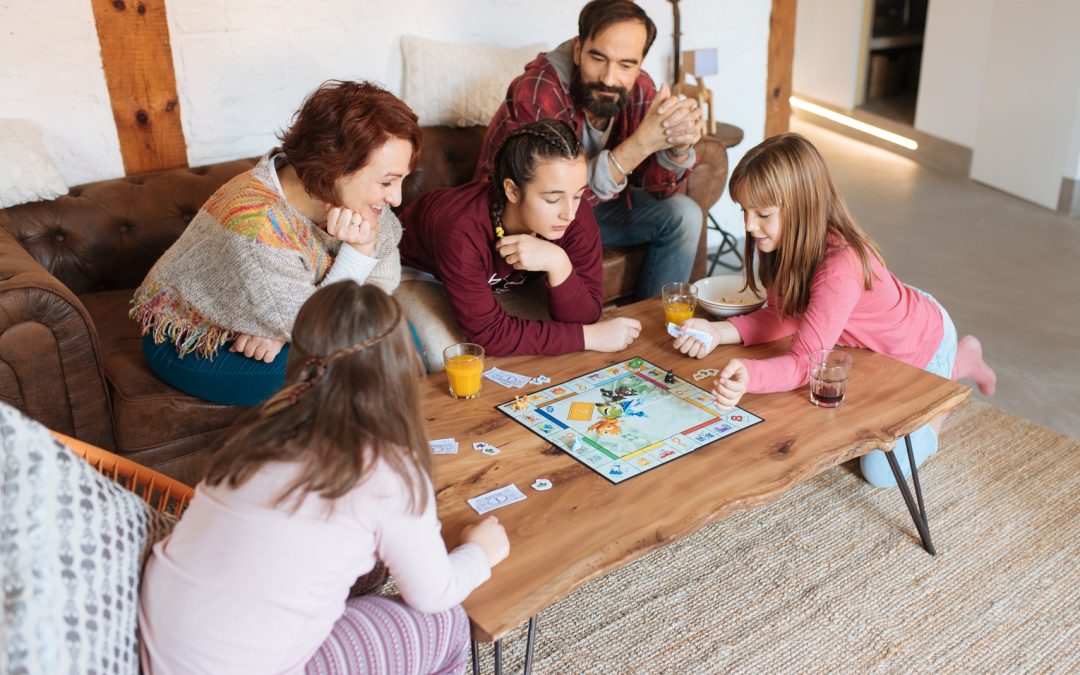Every family goes through phases where complaining seems to be everyone’s favorite pastime—especially when kids hit the “complaining age.” From “This is boring” to “Why do we have to eat that?” these small moments of negativity can quietly drain the energy out of home life. The good news: it’s completely normal—and entirely fixable.
With some awareness, gentle structure, and a shared commitment, families can turn these low-vibe moments into powerful opportunities to build gratitude, emotional intelligence, and joy. Here’s one way to guide your crew toward more positive, connected communication.
Language for Reducing “Negative Nelly” Talk
“We made our family to have fun and are all so lucky to live together and do the fun things we get to do. We’ve noticed that sometimes we say negative things—about situations, other people, or even about ourselves. To help us do that less often, we’re setting a bright-line boundary around this habit. When we notice ourselves doing it, we’ll pause and rephrase in a higher-vibe way. Sometimes, that might mean simply choosing silence.
It’s okay to have any emotion. We can feel disappointed, frustrated, or tired—that’s part of being human. What’s not okay is to pile on with negative words or actions that pull us away from curiosity, problem-solving, or acceptance.
Let’s practice now with some examples:
| Negative | Higher Vibe |
|---|---|
| “I’m no good at math.” | “I’m getting better and better at math.” |
| “This sucks.” / “This is no fun.” | “This isn’t what I expected. I’ll get out of it what I can.” |
| “He’s a jerk. He’s always like that.” | “I wonder why he acts that way. I’ll give myself some space so I can keep feeling good.” |
| “This tastes terrible.” | “That was good to try. I really like the ______, so I’ll have more of that.” (Or say nothing at all, especially when you’re a guest.) |
The Gates of Skillful Speech
Before speaking, we can pause and ask:
- Is it true?
- Is it kind?
- Is it needed?
When we use this simple filter—True, Kind, Needed—we build self-awareness and set a new family standard for respectful, thoughtful communication.
Setting the Standard
Before an outing or family event, take a moment to “set the standard.” You might say:
“Okay, we’re going into this birthday party. Remember, our mission is curiosity and problem-solving—and sometimes, acceptance. What are some high-vibe things we can notice and say to bring positive energy and participation to the event?”
Let everyone brainstorm a few uplifting observations or compliments. Then, identify a few things that might feel underwhelming and agree to stay positive—or say nothing—so everyone contributes to a gracious, grateful atmosphere.
Encourage full participation and delight in what’s been planned. Even if the game seems “lame,” model doing it with enthusiasm. Remind your kids, “Let’s bring the energy we’d want if we were the hosts.”
Practicing Before Family Activities
Before starting a game, meal, or outing, you can “paint the picture” (PTP) of how you want to feel during and after. Try statements like:
- “If I’m losing, I’ll focus on having fun and learning from others.”
- “If I get tired, I’ll push through instead of quitting.”
- “I’ll cheer others on when they do well.”
- “I’ll think about how I want to feel when we finish, not just what I get out of it.”
This approach works for anything—a board game, tennis match, chore, or family dinner. When someone gets off track, gently remind them:
“Let’s focus on how we want to feel when we’re done. Remember, we’re here to be together and have fun.”
At the end, affirm the success:
“Everyone used their skills and regulated themselves—it was so much fun to do that together. I love being with you.”







